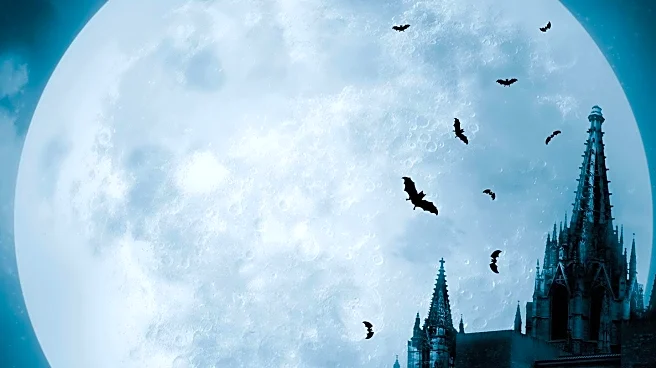What's Happening?
Across the United States, horror and gothic-themed shops are becoming increasingly popular, offering a variety of products from horror movie memorabilia to gothic fashion. This trend is seen in places
like Ghoulish Mortals in St. Charles, Illinois, and The Twisted Spine, New York City's first horror bookstore. These establishments cater to a growing community interested in horror as a lifestyle, providing spaces for fans to gather and explore their interests year-round, beyond the typical Halloween season.
Why It's Important?
The rise of horror-themed businesses indicates a shift in consumer interests, where niche markets are becoming mainstream. This trend reflects broader cultural changes, where horror is no longer confined to seasonal events but is embraced as a year-round lifestyle. The success of these businesses highlights the potential for economic growth in niche markets, encouraging entrepreneurs to explore unique themes and cater to specific communities. This development also underscores the role of social media and popular culture in shaping consumer behavior and preferences.
What's Next?
As the popularity of horror-themed businesses continues to grow, more entrepreneurs may enter the market, leading to increased competition and innovation. This could result in a wider variety of products and experiences for consumers, further solidifying horror as a mainstream lifestyle choice. Additionally, the trend may influence other industries, such as entertainment and fashion, to incorporate horror elements into their offerings, expanding the genre's cultural impact.
Beyond the Headlines
The embrace of horror as a lifestyle raises questions about cultural perceptions of fear and the macabre. It suggests a societal shift towards accepting and exploring darker themes as a form of self-expression and community building. This trend may also reflect broader psychological and social dynamics, where individuals seek to confront and understand their fears in a controlled and communal environment. As horror becomes more integrated into everyday life, its role in cultural and personal identity is likely to evolve.










